
Levon Kirkland is a familiar name to Tigers football fans. It's also a familiar name to Steelers fans, since he spent the vast majority of his successful 11 year NFL career with Pittsburgh. I recently spoke to a couple of people that I know who had seen Levon (his full name is Lorenzo Levon Kirkland) at church and the gym here in the upstate of SC. I was very excited to hear this and my immediate thoughts were to try and secure an interview with him. Sometimes, it is much more difficult than you may think to get an interview with a former player, regardless of their "star-status". In this case, to me, Mr. Kirkland represented an "icon" and a living legend and so I was a little unsure of my chances. However, I was able to speak with him yesterday and he graciously agreed.
Levon is from Lamar, SC, which is in Darlington County and very near Florence. He played football (also ran track and high-jumped) at Lamar High School, which is a small, Division 1 class A school with three state football titles over the last decade. He came to Clemson in 1987 and red-shirted his freshman year. As a RS freshman, he made an immediate impact at LB and had his best game against Maryland, accounting for 13 tackles, 3 tackles for loss, a sack and a forced fumble. As a sophomore, he was named all-ACC and was also MVP of the Gator Bowl after recording 9 tackles, a sack and 3 QB pressures. As a junior, he was again all-ACC, named second-team All American, was a finalist for the Butkus award and a key part of the nation's #1 defense. In his senior season, Kirkland was again all-ACC, a first-team All American, a semi-finalist for the Lombardi award and a member of the team which most recently won the ACC championship.
After his senior season, Levon was selected by the Pittsburgh Steelers in the 2nd round of the 1992 draft. After moving from outside to inside LB, he learned the ropes as a rookie but became the starter the following year and every year thereafter. 1996 is considered by many to be his "breakout" year, in which he recorded 114 tackles, 4 sacks and 4 interceptions. After both the 1996 and 1997 seasons, he was selected to the Pro Bowl. Kirkland played a total of 9 years for the Steelers and was waived in 2001 due to salary cap pressure. He was signed by Seattle for the 2003 season and recorded 100 tackles and one sack. In 2004, he was signed by Philadelphia and retired after the season.
Upon retirement, Levon returned to Clemson to finish his degreee in sociology and was looking for an opportunity to give back to the University. The opportunity presented itself and he was subsequently hired as Coordinator of Minority Recruitment at Clemson. Kirkland was inducted into the Clemson Hall of Fame in 2001 and in 2008 was indcucted into the SC Athletic Hall of Fame.
Levon is from Lamar, SC, which is in Darlington County and very near Florence. He played football (also ran track and high-jumped) at Lamar High School, which is a small, Division 1 class A school with three state football titles over the last decade. He came to Clemson in 1987 and red-shirted his freshman year. As a RS freshman, he made an immediate impact at LB and had his best game against Maryland, accounting for 13 tackles, 3 tackles for loss, a sack and a forced fumble. As a sophomore, he was named all-ACC and was also MVP of the Gator Bowl after recording 9 tackles, a sack and 3 QB pressures. As a junior, he was again all-ACC, named second-team All American, was a finalist for the Butkus award and a key part of the nation's #1 defense. In his senior season, Kirkland was again all-ACC, a first-team All American, a semi-finalist for the Lombardi award and a member of the team which most recently won the ACC championship.
After his senior season, Levon was selected by the Pittsburgh Steelers in the 2nd round of the 1992 draft. After moving from outside to inside LB, he learned the ropes as a rookie but became the starter the following year and every year thereafter. 1996 is considered by many to be his "breakout" year, in which he recorded 114 tackles, 4 sacks and 4 interceptions. After both the 1996 and 1997 seasons, he was selected to the Pro Bowl. Kirkland played a total of 9 years for the Steelers and was waived in 2001 due to salary cap pressure. He was signed by Seattle for the 2003 season and recorded 100 tackles and one sack. In 2004, he was signed by Philadelphia and retired after the season.
Upon retirement, Levon returned to Clemson to finish his degreee in sociology and was looking for an opportunity to give back to the University. The opportunity presented itself and he was subsequently hired as Coordinator of Minority Recruitment at Clemson. Kirkland was inducted into the Clemson Hall of Fame in 2001 and in 2008 was indcucted into the SC Athletic Hall of Fame.
JM: You played high school football in your hometown of Lamar, SC for the Lamar Silver Foxes. You've mentioned over the years that you were not heavily recruited, so considering your success at Clemson, there must have been a lot of college coaches who regretted overlooking you. Do you believe it puts kids at a disadvantage from a recruiting standpoint- coming from a small town and high school program?
LK: I believe back then it was a big disadvantage for most kids from small towns. The State and the Greenville News just didn’t cover kids from the Pee Dee or surrounding areas. You had to be discovered. I was lucky because I was basically discovered by Clemson University. I still think that some kids get overlooked, not because of the lack of information but because of their size or the size of the high school programs and most universities don’t have the time or man-power to recruit under every rock.
JM: Who recruited you for Clemson and what other programs did you receive offers from? Did you grow up a Clemson fan or what sealed your decision to play for the Tigers?
LK: I was recruited by Miles Aldridge and he was the inside linebacker coach at the time. He looked a little like Nick Nolte, the actor from 48 hours with Eddie Murphy. I received offers from University of South Carolina, South Carolina State and Appalachian State. My one college visit to Clemson is what sealed the deal for me. I saw the campus, met the Clemson family and that's all it took. I didn’t even visit another school because I knew I found what I was looking for in a university.
JM: You had some great accomplishments during your playing days at Clemson, including being named MVP of the Gator Bowl, All-ACC for three straight years, first team All-American your senior year, a seminfinalist for the Lombardi and finalist for the Butkus awards. What or who motivated you to play at such a high level and when did you realize that the prospect of playing in the NFL could be a reality?
LK: I’ve always gotten encouragement in every level that I played on. My initial motivation was to be better than my older brothers because I heard all of their war stories (laughs). Seriously, I had mentors that saw more in me than I saw in myself and encouraged me to be the very best. I was also blessed enough to play for some outstanding programs. You don’t get much better than Clemson University, the Pittsburgh Steelers and the Lamar Silver Foxes when it comes to class and the development of athletes. It wasn’t until after the Gator Bowl (against West Va. in 1989) that I saw the light at the end of the tunnel. I always thought I could play professional football but running after Major Harris and winning the MVP of the Gator Bowl really gave me the boost I needed to take it to the next level.
JM: Looking back on all of the games you played in during your Tiger career, are there memories that stand out to you now about your personal peformance and/or the team's performance in some of them? How about fond and/or fun memories you have of Clemson off the field?
LK: The best memories I have about Clemson University is the fact that I got to run down the hill on most Saturdays during my college career. That was the best! I loved the fact I played for a great program and was a member of the number one defense in 1990. As far as off the field memories- take your pick, I was at a university that loved football.
JM: You did go on to play in the NFL and had a successful career for eleven years, most of which was with the Steelers. Describe what was going through your head at the start of your rookie season when you arrived in Pittsburgh and meet all of these veterans you've watched on TV. Was it like deja' vu coming to Clemson from Lamar and wondering if you can play at that level?
LK: It was actually like coming to Clemson from Lamar. The biggest surprise for me was that everyone on that team was very good, worked hard and wanted to be the best. As a rookie, you have to earn the respect of the players and most players on that level can recognize a fraud or a player when they see one. So, it was back to the drawing board but it was a dream to be playing at the highest level.
JM: Not to get too personal here but seven years after leaving Clemson, you were the highest paid linebacker in the NFL. Without question, your accomplishments on the field allowed you to earn it. I think most people wonder what it would be like to be an athlete getting paid millions of dollars. What goes through your mind when the checks are rolling in? Were you thinking, "I've made it, I can buy mansions and Ferraris" or were you worried about injuries and trying to live conservatively?
LK: To tell you the truth, the day I signed that contract was the most humbling day of my life. In one way I couldn’t believe it that I was the highest paid linebacker and in other ways it gave me hope that with hard work and faith that anything is possible. No Ferraris or mansions, maybe one day.
JM: You played at a very high level during your entire eleven-year NFL career, even including the last season with the Seattle Seahawks in which you started 15 games and had 74 tackles. Why did you choose to retire after that 2002 season when it seems that statistically you had proven you were still capable of continuing to play at that high level?
LK: I just really didn’t love it as much as much as I once did. Now, I will always love the game of football and I would love to coach one day and share the knowledge that I have but I didn’t love playing it anymore. Plus, I had just gotten married and wanted to spend some time with my wife and new baby girl.
JM: After your NFL career, you returned to Clemson and received your degree in sociology. You then expressed a desire to give back to the University and were subsequently hired as Coordinator of Minority Recruitment Initiatives. What exactly is it that you do?
LK: I basically go out and share my experience of being an Clemson alum. and try to share the educational and social opportunities here at Clemson University. I know what it means to be a first-generation student and I want those students to know that there is someone here that they can relate to and be comfortable with.
JM: In your senior season, you played on the last football team to win an ACC championship for the Tigers, which was in 1991. Give us your thoughts on the current state of the Clemson Tigers football program, the coaching changes and what needs to happen in order to bring another conference championship to Death Valley. Are you currently involved with the football program in any way?
LK: I think Clemson is headed in the right direction now. I believe that Coach Swinney will do a great job as head coach. I think it will take some time but Rome wasn’t built in a day. We as fans can become so impatient and want a national championship right now. It doesn’t happen that way and that’s a fact. He will lead the troops in the way of an ACC Championship and after that, the sky is the limit. I’m not currently involved with the program, but I would like to be. I know I could make a difference with my knowledge of the game and being a positive mentor for the athletes.
JM: I'm assuming that since you spent the majority of your NFL career with the Steelers that you're happy they're playing in the Super Bowl this year. Will you be jealous of Nick Eason if he ends up with a Super Bowl ring?
LK: I’m very happy for the Pittsburgh Steelers and course I’m thrilled for Nick Eason and the great opportunity he has to become a member of a Super Bowl Championship team. I will never be jealous of another person's success. In fact, I celebrate when good things happen to people.
JM: Levon, thank you so much for taking time out of your schedule to allow Tigers fans to catch up with you. I am proud that you are a Clemson Tiger and for all you have done and are doing for the university, students and fans.

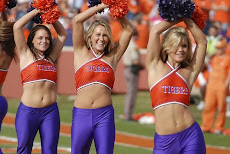
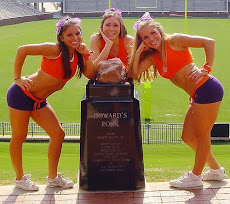
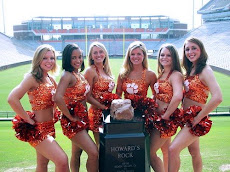

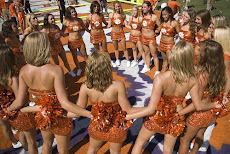
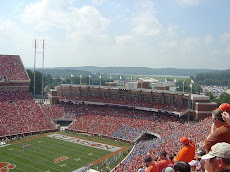
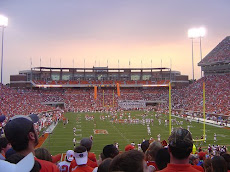
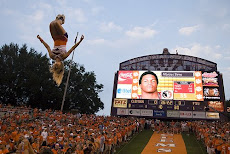
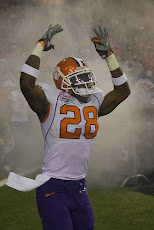
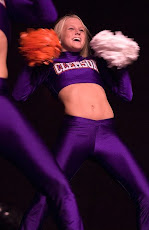
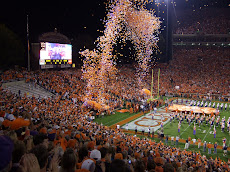
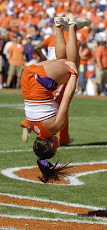

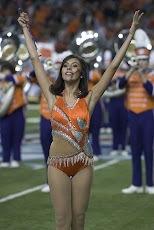
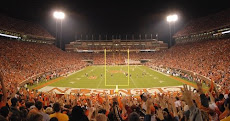
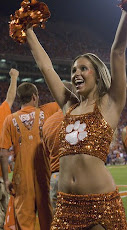
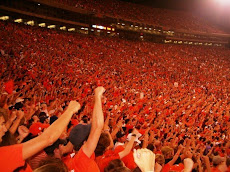
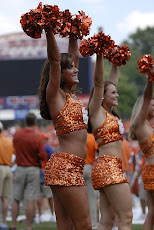
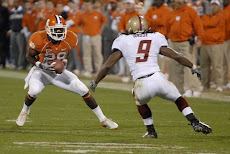
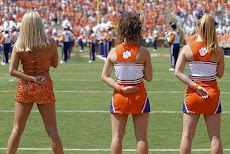
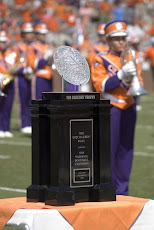
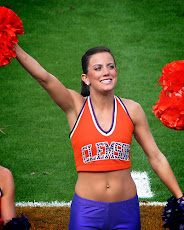.jpg)
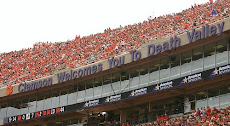
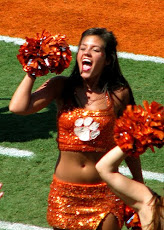.jpg)
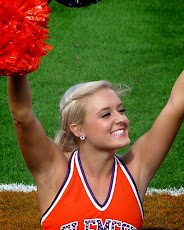.jpg)
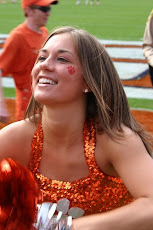.jpg)
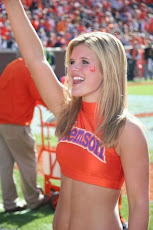
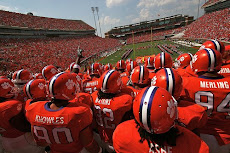
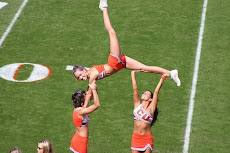
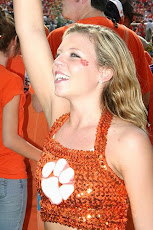
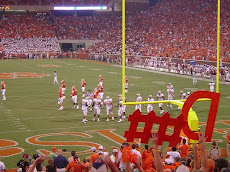
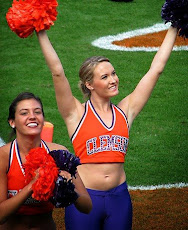
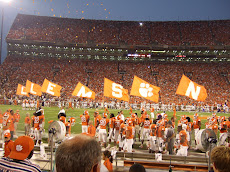
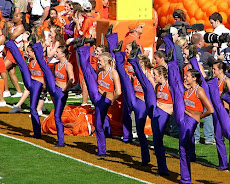
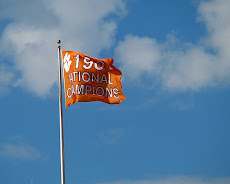

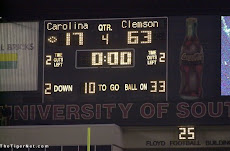
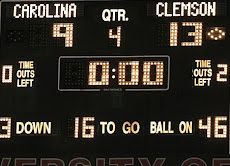
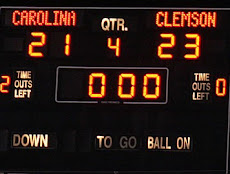

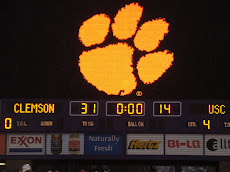
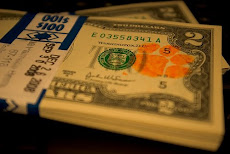
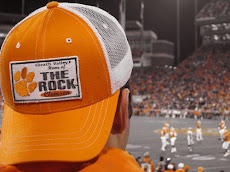
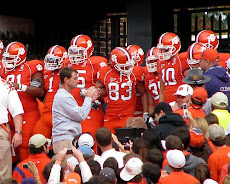

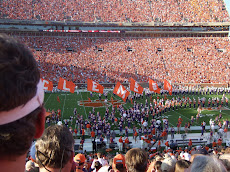
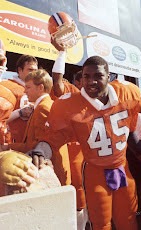
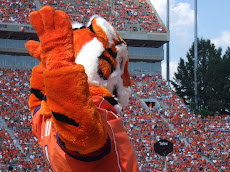
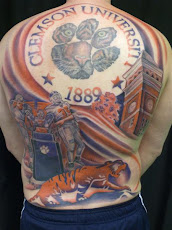
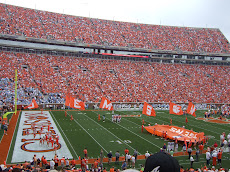
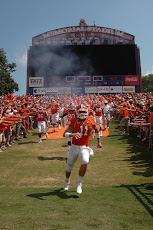
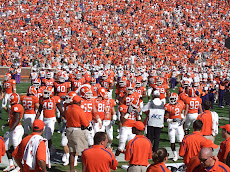
1 comment:
interesting - go Steelers
Post a Comment